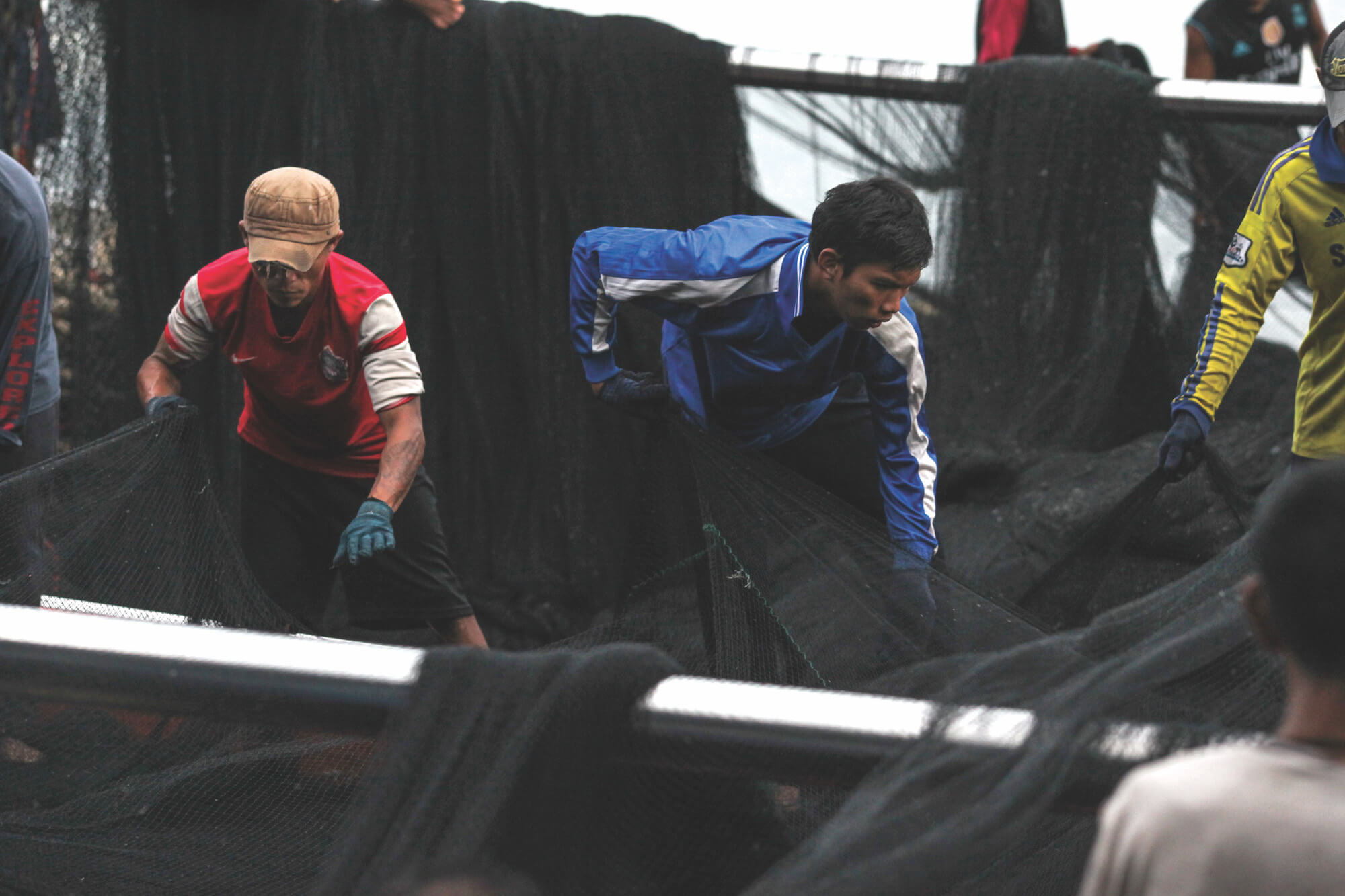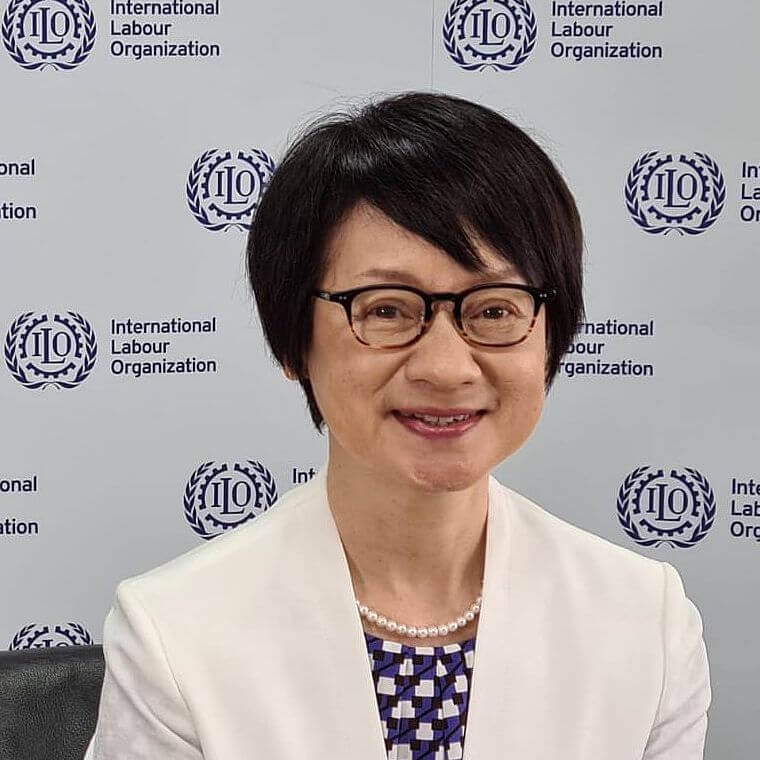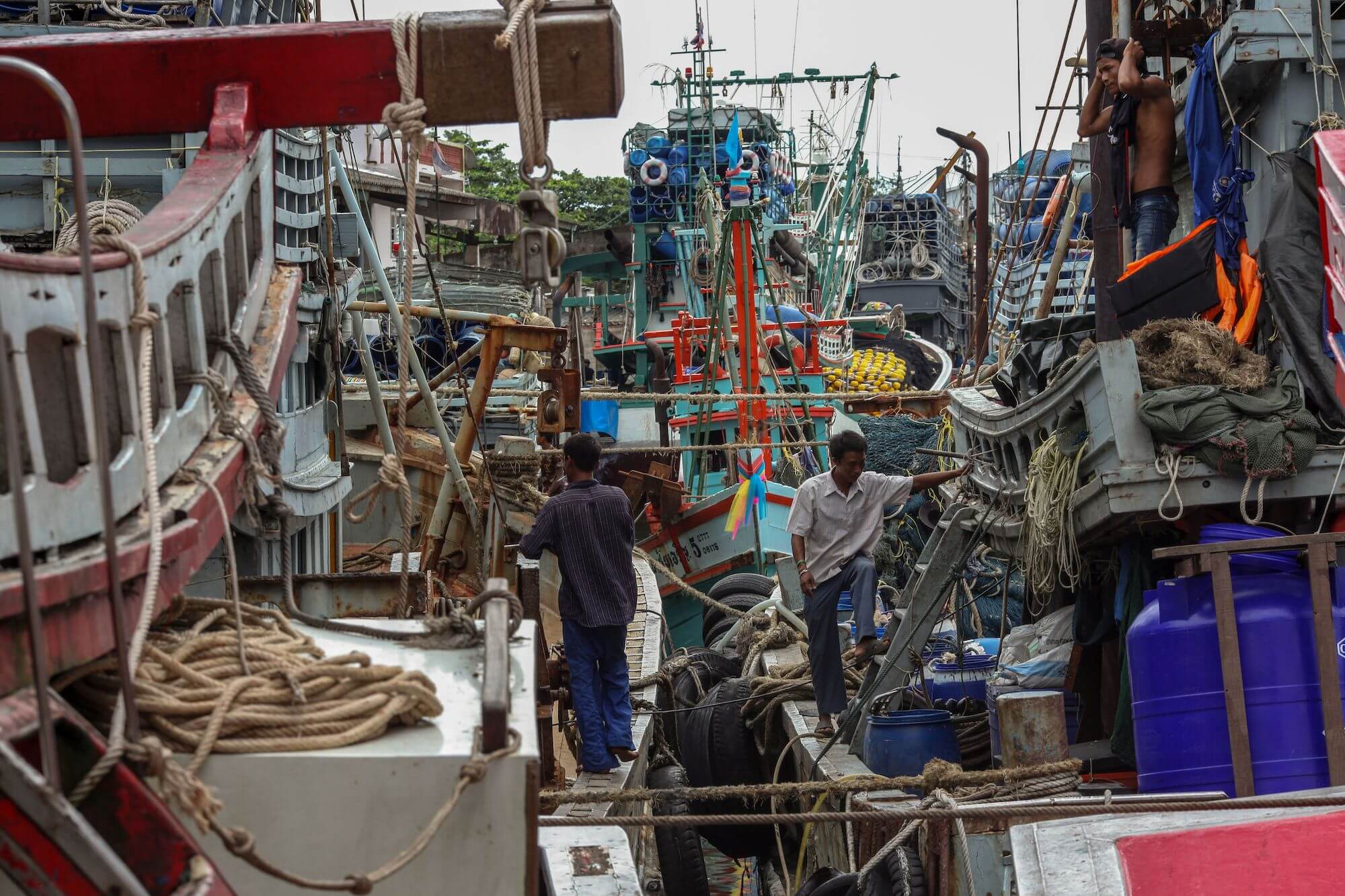




With its long coastlines and fertile seas, ASEAN Member States are some of the world’s top producers and exporters of fish and seafood products. In 2020, Indonesia, Viet Nam, the Philippines, Thailand, Malaysia, and Myanmar were all among the top 25 countries for marine capture fisheries. The Asian region is home to nearly 80 per cent of the world’s fishers, employing over 30 million women and men for work on fishing vessels and millions more in the broader seafood supply chain.
In recent decades, the ASEAN labour market in the fishing and seafood processing sectors has changed dramatically in response to the region’s rapid social and economic development. Migrant workers now fill a substantial share of these jobs because of the reluctance of nationals to pursue fishing work.
Fishing is well-known to be one of the most dangerous occupations worldwide, with fishers facing a high incidence of injuries and deaths at work. Fishing often involves working in adverse weather conditions and hazardous marine environments. The living conditions can be difficult and uncomfortable, requiring fishers to stay in cramped quarters for extended periods.
Workers in the fishing sector also routinely experience major deficiencies in their working conditions. They frequently work long and unpredictable hours, are excluded from basic labour and social protections in some countries, and receive relatively low and irregular wage payments. Fishers also commonly lack sufficient opportunities for freedom of association and collective bargaining to improve their wages and conditions of work. In addition, fishers work in isolated situations at sea where they are unable to access assistance when faced with exploitation and abuse.
The migrant workers who make up such a large proportion of ASEAN’s fishing and seafood processing workforce experience additional vulnerabilities during their recruitment and employment. During the recruitment process, migrant fishers are frequently required to pay hefty migration costs and fees, which can place them deeply into debt. Once they are working onboard a fishing vessel, they often discover wages and working conditions differ from those promised by their recruiter. In addition, migrant fishers often work in a precarious legal status that is strictly tied to their employers, making it difficult for them to leave exploitative employment situations.
ASEAN and its Members States commit to improving protection for migrant fishers
In response to growing concerns about working conditions for migrant fishers, ASEAN Member States have been strengthening labour and social protections through a number of regional platforms. The ASEAN Forum on Migrant Labour (AFML) has consistently recognised the need to enhance policies and improve enforcement to protect migrant fishers’ rights. Developed through dialogue between government, employer, worker and civil society representatives, the AFML has made important recommendations on the fishing sector, including improving the effectiveness of labour inspections, addressing occupational safety and health, and formalising employment for migrant fishers. Moreover, the 8th ASEAN Labour Inspection Conference in 2019 also recognised the need to enhance coordination among labour inspectorates in countries of origin and destination countries, as well as to take other measures to improve enforcement in the fishing industry.
To further regional cooperation on work in fishing, the European Union-supported ILO Ship to Shore Rights South East Asia programme, a multi-country, multi-annual initiative, and the Indonesian Coordinating Ministry of Maritime Affairs and Investment co-hosted the Fair Seas Labour Conference in Bali, Indonesia, in September 2022. The conference brought together tripartite and civil society representatives from eight ASEAN countries to discuss safe migration and decent work in the fishing and seafood processing sectors. The key outcome of the conference was a plenary resolution, which recognised a number of priority areas of work and committed the participants to continue to meet regularly to expand regional cooperation between ASEAN countries.

As Chair of ASEAN in 2023, the Government of Indonesia has been leading regional coordination efforts. With support from the International Labour Organization, International Organization for Migration, and other international organisations, a workshop for the development of an ASEAN Declaration on the Protection of Migrant Fishers was organised in March 2023. Workshop participants included government, social partners, and civil society representatives from all ASEAN countries and provided substantive feedback to strengthen the draft declaration circulated by Indonesia. The declaration has been adopted during Indonesia’s chair and will be followed by concrete guidelines for implementation.
All of these regional initiatives on improving conditions for migrant fishers build upon the foundation of previous ASEAN commitments to protect the rights of migrant workers. In particular, this includes the guiding principles of the ASEAN Consensus on the Protection and Promotion of the Rights of Migrant Workers, which establishes a set of rights for migrant workers and members of their families and recognises the shared responsibilities of countries of origin and destinations in ensuring they are able to benefit from them in practice.
Individual ASEAN countries are also increasing their efforts to protect migrant fishers’ rights. In 2018 and 2019, Thailand ratified the 2014 Protocol to the Forced Labour Convention, 1930 (No. 29) and the Work in Fishing Convention, 2007 (No. 188). In addition, Thailand has established 30 Port-in/Port-out Inspection Centres to help ensure that Thai fishing sector employers adhere to national regulations onboard fishing vessels. Several other countries in Southeast Asia are now considering following Thailand’s lead, developing similar initiatives to strengthen regulations in the fishing sector.
Charting a course towards fairer seas in ASEAN’s blue economy
The long-standing problems with exploitative working conditions for migrant fishers are a daunting global challenge. These issues are particularly manifest in Southeast Asia because of its critical role as a key producing region and area of origin and destination for migrant fishers. With the increasing global demand for seafood and expanding regulation of supply chains in key market states, it is more critical than ever that ASEAN Member States make a strong commitment to strengthening labour and social protection for migrant fishers.
A particularly critical step that all ASEAN Member States should strongly consider is to ratify the Work in Fishing Convention, 2007 (No. 188). The Work in Fishing Convention is extremely important because it responds directly to many of the key decent work deficits faced by migrant fishers within the region, setting legally-binding minimum standards for recruitment, minimum age of fishers, hours of rest, work agreements, payment of wages, repatriation, food and accommodation, occupational safety and health, social security coverage, labour inspection, complaint mechanisms and other key issues. Ratifying and fully implementing the articles in the Convention would have a major impact on improving working conditions for migrant fishers in the ASEAN region.
The structural factors that drive labour mobility for migrant fishers in ASEAN are not likely to change in the near term. With ageing populations and labour shortages in key destination countries, and unemployment and low wages in countries of origin, the regional disparities in development remain. It is therefore an opportune time for ASEAN Member States to adopt a progressive regional declaration on the protection of migrant fishers—in line with international standards—and take forward its implementation to ensure safe migration for decent work in ASEAN’s blue economy.
The Ship to Shore Rights South East Asia Programme is a multi-country, multi-annual initiative of the European Union and the United Nations, implemented by the International Labour Organization in collaboration with the International Organization for Migration and the United Nations Development Programme. More information on Ship to Shore Rights South East Asia can be found at: www.shiptoshorerights.org








